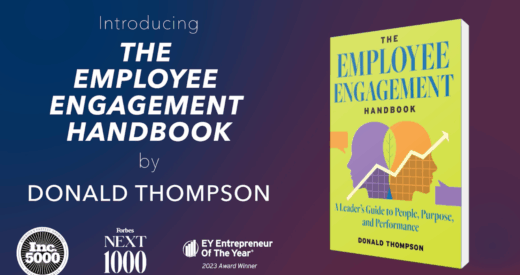Positive professional relationships are a leading factor in an employee’s satisfaction at an organization. In fact, an employee’s relationship with their direct supervisor is the top indicator of job satisfaction and a key element of overall personal well-being, according to McKinsey & Co. And, as anyone who has stayed at an unsatisfying job because of their coworkers can confirm, peer relationships matter too. Connections of all kinds increase engagement, collaboration, and productivity.
Strong relationships are as crucial to employee engagement as they are to long-term health and happiness. Strategic advisers Fred Jewell and Tracy Reznik argue that various factors contribute to engagement, however none are as influential as robust interpersonal connections, an assertion supported by social psychology research. According to Harvard Business Review, leaders who prioritize relationships with their colleagues simply perform better. They have employees who are more productive, more loyal, and more enthusiastic. They also experience tangible business benefits, such as higher client satisfaction, a better bottom line, and boosted shareholder returns.

The profound influence of relationship-building on employee engagement can be attributed to two main factors: happiness and connection to others. A study by Julia K. Boehm and Sonja Lyubomirsky indicates that personal happiness is a significant predictor of workplace success, and positive relationships are a key component of this happiness. Additional research found that motivation at work is largely driven by feelings of connection to others, along with having autonomy and freedom.
In today’s multigenerational workplaces, relationships are especially crucial. “Differences in values, working styles, and communication approaches often lead to tension and misunderstandings. To bridge these generational gaps, leaders must foster strong workplace relationships that keep all employees engaged and happy at work,” writes Donald Thompson, CEO of The Diversity Movement, a Workplace Options company.
Recognizing the paramount importance of relationships in creating successful teams and businesses, leaders can adopt the following strategies to cultivate meaningful connections:
Make small talk
While small talk is sometimes criticized, it’s critical to building personal connections at work. “It’s more than idle chit chat,” explains Jackie Ferguson, VP of Content and Programming at The Diversity Movement. “These casual conversations generate feelings of belonging and contribute to team cohesion.” At the start of each meeting, take time to ask how the team is doing, what they did over the weekend, or what they are looking forward to that week.
Encourage transparent and authentic communication
Healthy relationships depend on trust that comes from open, honest, and clear communication. Be authentic and vulnerable so that colleagues can understand your intent and goals. Remember, clear is kind. Unclear is unkind.
Face conflict with emotional intelligence
Recognizing, understanding, and managing your own emotions, as well as the emotions of others is necessary to handle conflict, disagreements, or other tough situations. If a project is over budget, does the team play the blame game, or do people act compassionately and self-aware? By acting with empathy and emotional intelligence, leaders can maintain relationships for the good of the team and its future productivity.
Emphasize company values
When teams share common goals, they are better able to perform against expectations. Make sure to align projects and priorities to company values to maximize team cohesion.

Build proximity (even on remote teams)
Feeling close—physically and emotionally—is critical to meaningful relationships. In the office, consider setting up communal work spaces and hosting monthly team lunches. For remote employees, make sure calls include video, activities are made accessible, and frequent casual communication is encouraged via direct messaging platforms.
Demonstrate empathy
Empathy is a key component of strong relationships, as it helps people feel seen and understood. It allows us to relate to one another and better understand alternative perspectives. It reduces conflict, makes relationships more resilient, and increases relationship satisfaction.
Organize team-building activities
While team-building events shouldn’t be the only means to forge relationships, they can expedite the process. Consider inclusive activities that require teamwork, such as an escape room or team-based trivia competitions. Simple “get to know you” activities are also fun, such as Two Truths and a Lie or This or That. These conversation-starters lead to deeper, personal connections.

Employee engagement is fundamentally driven by the quality of relationships within the workplace. Leaders who prioritize building strong, meaningful connections foster an environment of happiness, loyalty, and productivity. By understanding the profound impact of relationship-building, organizations can unlock significant business benefits and create a thriving, inclusive work culture. Emphasizing these connections will pave the way for long-term success and employee fulfillment.
To increase employee engagement, leaders must adopt a holistic approach to employee well-being and empower individuals to be their authentic selves. The Employee Engagement Growth Model is a framework that enables organizations and leaders to boost the effectiveness of teams while inspiring enthusiastic, motivated, and committed employees to do their best work. Contact us today to learn more.
Kaela Sosa is co-founder and Manager, Curriculum and Programming at The Diversity Movement. Her expertise includes psychology, gender identity and sexual orientation and racial identities. Kaela has written and spoken about a range of topics: active allyship, the inclusive talent lifecycle, disability etiquette, LGBTQ+ inclusion and inclusive language. At The Diversity Movement, she leads the development and execution of learning programs, including digital learning, online courses, certificate programs and certification opportunities. Connect with or follow Kaela on Linkedin to learn more.




